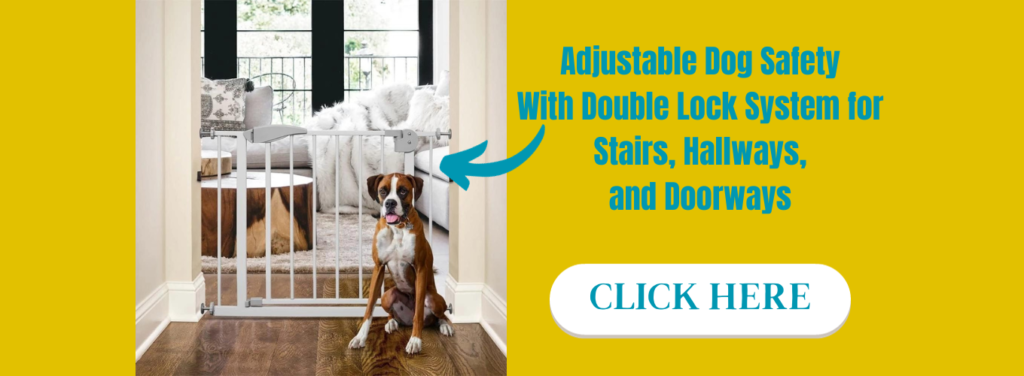
Senior Dog Adoption: Why Older Dogs Make Amazing Pets Too
Senior dog adoption is a wonderful option for those looking to bring a new furry friend into their home. While puppies may be cute and energetic, older dogs have their own unique charm and make amazing pets too. In this article, we will explore the benefits of senior dog adoption, the health benefits that come with it, as well as the challenges that may arise. Whether you’re considering adopting a senior dog or simply want to learn more about them, this article will provide you with valuable insights.
Key Takeaways
- Senior dogs offer unconditional love and loyalty.
- They are often calmer and well-behaved compared to younger dogs.
- Many senior dogs are already trained and housebroken.
- Their lower energy levels make them suitable for a more relaxed lifestyle.
- Senior dogs usually have an established health history, which can be helpful for managing their care.
Benefits of Senior Dog Adoption

Unconditional Love and Loyalty
Senior dogs are known for their unconditional love and loyalty towards their owners. They have a deep bond and are dedicated to their human companions. These dogs have experienced life and have a lot of love to give. They are grateful for the opportunity to be loved and cared for in their golden years. Adopting a senior dog means experiencing a love that is truly special and unique. Their loyalty knows no bounds.
Calm and Well-Behaved
One of the benefits of adopting a senior dog is that they are often calm and well-behaved. Unlike puppies, senior dogs have already passed their hyperactive stage and are more relaxed. They are less likely to engage in destructive behavior and are more content to simply enjoy your company. Additionally, senior dogs have usually been trained by their previous owners, making them easier to manage. This means you can spend less time on training and more time bonding with your new furry friend. Adopting a calm and well-behaved senior dog can bring a sense of peace and tranquility to your home.
| Benefit | Description |
|---|---|
| Unconditional Love and Loyalty | Senior dogs have a deep capacity for love and loyalty, and they form strong bonds with their new owners. |
| Calm and Well-Behaved | Senior dogs are often more relaxed and less likely to engage in destructive behavior. |
| Already Trained | Senior dogs have usually been trained by their previous owners, making them easier to manage. |
Adopting a senior dog is a wonderful opportunity to provide a loving home for a deserving companion. By choosing to adopt a senior dog, you not only gain a loyal and loving friend, but you also give them a second chance at happiness and a comfortable retirement.
Already Trained
One of the major benefits of adopting a senior dog is that they are often already trained. This means that you don’t have to go through the time-consuming process of house-training or teaching basic commands. Senior dogs have already learned the ropes and are generally well-behaved. They understand how to behave in a home environment and are less likely to engage in destructive behaviors. This can save you a lot of time and effort in the early stages of adoption.
Here is a table summarizing the benefits of senior dog adoption:
| Benefit | Description |
|---|---|
| Unconditional Love and Loyalty | Senior dogs are known for their unwavering love and loyalty. |
| Calm and Well-Behaved | Senior dogs are generally calmer and more well-behaved compared to younger dogs. |
| Already Trained | Senior dogs have often already been house-trained and know basic commands. |
Here is a list of potential challenges of senior dog adoption:
- Potential Health Issues
- Adjustment Period
- Limited Time Together
Adopting a senior dog can be a rewarding experience as you provide a loving home for a dog in their golden years.
Health Benefits of Senior Dog Adoption

Lower Energy Levels
Senior dogs have lower energy levels compared to younger dogs. This means they require less exercise and are generally more relaxed. Regular walks and light playtime are usually sufficient to keep them happy and healthy. However, it’s important to note that senior dogs still need mental stimulation and social interaction. It’s a good idea to provide them with puzzle toys and opportunities to interact with other dogs or humans. By understanding and accommodating their lower energy levels, senior dogs can still lead fulfilling and enjoyable lives.
Established Health History
Having an established health history is a significant advantage of senior dog adoption. It allows potential owners to have a clear understanding of the dog’s past medical conditions and treatments. This information is crucial in providing the necessary care and ensuring the dog’s well-being. Additionally, with an established health history, owners can anticipate any potential health issues that may arise and take preventive measures. Regular veterinary check-ups become even more important for senior dogs to monitor their overall health. By adopting a senior dog with an established health history, owners can make informed decisions and provide the appropriate care needed.
| Benefit | Description |
|---|---|
| Reduced Energy Levels | Senior dogs are generally less active and require less exercise. |
| Established Health History | Knowing the dog’s medical background helps in providing necessary care. |
| Easier to Manage | Senior dogs are often calmer and well-behaved, making them easier to handle. |
Senior dogs bring a wealth of love, experience, and companionship to their adoptive homes. They deserve a chance to live their golden years in a loving and caring environment.
Easier to Manage
Senior dogs are often easier to manage compared to younger dogs. They have lower energy levels and are less demanding in terms of exercise and playtime. Additionally, senior dogs usually have an established health history, making it easier for owners to monitor and address any health issues. Managing a senior dog’s needs and routines can be a more relaxed and enjoyable experience.
Challenges of Senior Dog Adoption

Potential Health Issues
While adopting a senior dog comes with many benefits, it’s important to be aware of potential health issues that may arise. Regular veterinary check-ups are crucial to monitor and address any health concerns. Some common health issues in senior dogs include arthritis, dental problems, and vision or hearing loss. However, with proper care and attention, these health issues can be managed effectively. It’s also important to provide a balanced diet and regular exercise to keep your senior dog healthy and active. By being proactive in their healthcare, you can ensure that your senior dog enjoys a happy and fulfilling life.
Limited Time Together
While it’s true that adopting a senior dog means you may have less time together compared to adopting a younger dog, the time you do have can be incredibly meaningful. Every moment spent with your senior dog is an opportunity to create lasting memories and strengthen your bond. It’s important to make the most of the time you have and cherish every day. As the saying goes, it’s not the quantity of time, but the quality of time that matters. Remember, adopting a senior dog allows you to provide a loving home and make a difference in their final years. They may not have as much time left, but the love and joy they bring into your life is immeasurable.
| Pros | Cons |
|---|---|
| Provides a loving home for a senior dog | Limited time together |
| Creates lasting memories and strengthens the bond | Potential health issues |
| Makes a difference in their final years | Adjustment period |
| Limited time together |
Frequently Asked Questions

1. Are senior dogs less energetic than younger dogs?
Yes, senior dogs generally have lower energy levels compared to younger dogs. They are more content with a calm and relaxed lifestyle.
2. Do senior dogs require less exercise?
Yes, senior dogs usually require less exercise than younger dogs. They have lower energy levels and may not be able to handle intense physical activities.
3. Are senior dogs already trained?
Many senior dogs are already trained and have basic obedience skills. They are often more well-behaved and easier to manage compared to puppies.
4. Do senior dogs have health issues?
Senior dogs may have more health issues compared to younger dogs. It’s important to provide them with regular veterinary care and monitor their health closely.
5. How long does the adjustment period for a senior dog adoption usually last?
The adjustment period for a senior dog adoption can vary depending on the individual dog. It may take a few weeks or even months for them to fully settle into their new home.
6. How long can I expect to have with a senior dog?
The lifespan of a senior dog can vary depending on their breed and overall health. On average, senior dogs can live anywhere from 7 to 15 years, but it’s important to cherish the time you have together.

